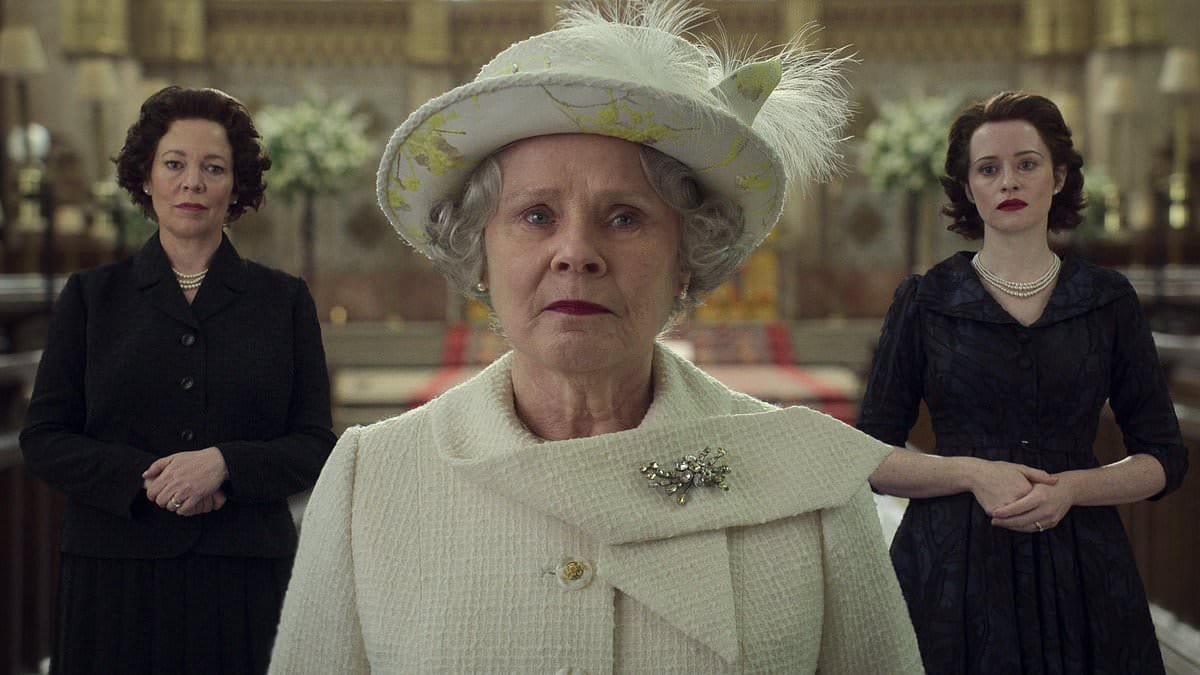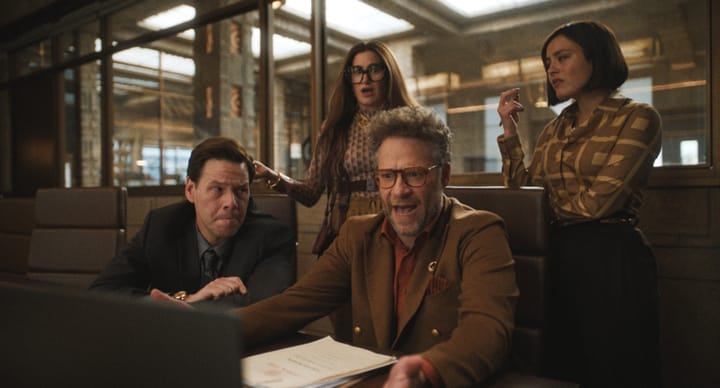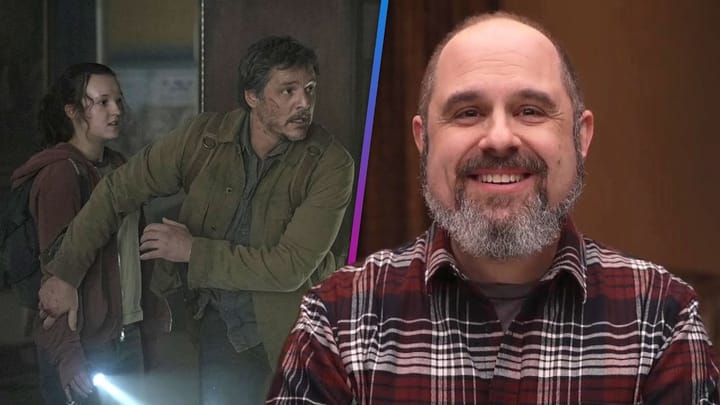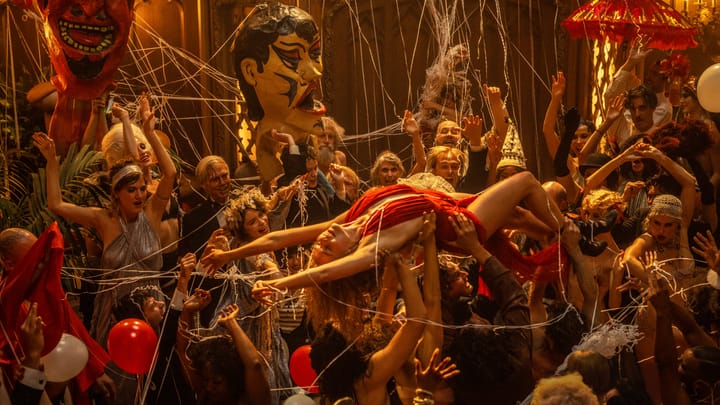Crowning Achievement
The Crown achieves the ability to lead the viewer in two directions at the same time, which leads to the sum total of exposing the layers of human complexity and the ability to hold two or more conflicting positions simultaneously.

The Crown has wrapped up after six stunning seasons, but unfortunately, seems to have been getting the focus of discussions for all the wrong reasons. Mainly poor and bitter reviews of the quiet, contemplative, non-definitive ending. Which is disappointing, but not surprising from a media audience always demanding spectacle and reverence at once.
As with most finales, it was impossible to give everyone the ending they desired, even though it was a fitting and appropriate ending for anyone who took the time to understand the depths of this series.
What I think is under remarked about, is its ability to show multiple points of view and create empathy for dual points of view, creating the best case of cognitive dissonance in a show that I’ve ever experienced. The term, cognitive dissonance, is typically associated with a negative connotation, but here I mean it in the positive.
The Crown achieves the ability to lead the viewer in two directions at the same time, which leads to the sum total of exposing the layers of human complexity and the ability to hold two or more conflicting positions simultaneously.
Time after time, the show would swing back and forth with perspectives of a given situation, playing wildly with the viewer’s thoughts and emotions. But the show wasn’t just a documentation of the unfolding events from different sides. It had a voice, an opinion, its own point of view. It is clear watching the show that it questions the legitimate need for the monarchy, or at the very least the idea of putting too much power behind the idea of the crown over all, especially around its human impact.
But even with that viewpoint, there is a consideration of the raw purpose of the monarchy and those apart of it (and not just the Royals themselves). The show takes deliberate time and care to show that idea from the people who believe in it the most, which is a complicated nuanced outlook in general, but even more so to present in a television series.
But it artfully, meticulously shows that side of how this family consistently believes that its intentions are just, noble, pure, and above all necessary for their country’s survival. When this side is shown, it makes sense, even if the ones making the argument have an invested interest in keeping the status quo. The argument has its merit because you see these people as people, with thought, emotions, and their own challenges, same as anyone.
But they are not heroes either. They all have flaws that are elevated by their position of privilege, which is on full display as well.
And they are pressed on their flaws and purpose by the public, their standards bearers, and world events through more than a half century. They are held to account, sometimes admitting to their need to modernize while battling back the larger existential questions of their existence.
What does come through is their human qualities that grounds the show and its characters to make them relatable while doing a remarkable job of articulating their viewpoint.
A recent example of this dichotomy is in season six. The Queen, given highly unfavorable poll numbers about all aspects of the Royal Family, asks the popular progressive Prime Minister for advice. The PM’s office uses the opportunity to push its populist ideas, with a list of cuts to staff and budgets to reduce excess on the people’s dime.
The Queen in turn does her own review of each of these staff members to find out what they do and their purpose. She finds that’s these men and women bring a special and specific set of skills that are not only unique but maintain a legacy and history of the Crown and therefore, Britain itself. They are caretakers, they have purpose.
I was struck by this as I relate to the logical position of the PM, but the Queen, of all people, showed the humanity behind the people of these suggested cuts. I’ve seen this argumentation in the series before, yet this still got me.
This is a prime example of carrying dueling thoughts and feelings on a topic, be it larger or small. Both are right, neither is wrong, but a decision has to be made, and the Queen gets to make that decision. This is a small one. Others have been of much more significant consequence, which we will touch on shortly.
The key here though is the craft of storytelling to position the audience, leading them down one path only to be turned around with a new perspective. But quickly there after not sure which way they should go.
But this type of emotional and cognitive whiplash has been a hallmark of the show. It gives time and space to the truth from different perspectives, allowing for a deft maneuvering of historical moments while presenting the difficult debate and considerations around both personal and collective decisions.
This, for me, is what separates this show from most. Especially in its nature as an ensemble, with no one character eliciting a direct bond, they found ways to still make an impact. Throughout the series, they gave every principal character their moments of prominence, which allowed for individual moments of empathy.
From Margaret’s photographer courtship, to her midlife crisis, to her with failing heath, we got to see a broken woman struggle from early in her life. With the betrayal of her sister denying the love of her life, to aimlessly wandering without purpose, to her body rejecting any self-indulgent pleasure that remained in her life. Through it all she stood by her sister, the Queen, while harboring a sense of resentment of it all.
For Philip, he is probably the most beguiled person in the show, who has gone through the whole gamut of emotion and life stages more than anyone. From being placed as number two (at a time when men are supposed to be number one), battling relationship challenges with those closest to him, to wandering life in search of purpose, to becoming a fierce advocate for the legacy of the crown and the family that inherits it. He continued to evolve and growth through each challenge, becoming a sage of wisdom during times of strife, both familial and public.
Charles is the most enigmatic of the group, cognitive dissonance incarnate. On the one hand, an intolerable, entitled, lamenter. On the other, a modern, progressive agent of change in a system that rejects disruptions to the existing state of affairs. You could distain him and champion him at the same time. While most in the family couldn’t stand him for his obvious flaws, the love of his life, Camilla Barker Bowels saw him for his virtues. Charles is genuinely passionate in what he believes in the face of ridicule from his family, while being arrogant on his place in life. He is the epitome of what The Crown endeavors (and succeeds) to show the layers and depths inherent in people.
And there are many more characters that are given exploration of their struggles and triumphs while existing in this orbit, the most obvious being Princess Diana, but also Winston Churchill, several other Prime Ministers—including my favorite Margaret Thatcher, her Private Secretaries, Mohamed Syed, and Prince William.
That leaves one last person of examination. But it’s not quite as obvious as one would think.
It’s not Queen Elizabeth, but the Crown itself. More over, the institution, the idea, the understanding of the Crown and what it represents. But this is intertwined with the person who wears the crown, which itself speaks to the duality explored in the show.
The Queen is the Crown and the Crown is the Queen, which manifests itself in the institution versus the individual. This is the very grounding of the show for all the characters listed above, look at opposing perspectives of importance and necessity.
I gained a great education on the notions of head of state versus the governing executive watching this show. In the United States, our president fills both roles, being the moral compass and healer, while also navigating the day-to-day business of the country’s political matters.
For the United Kingdom, the Prime Minister leads the government but the Queen (or King) represents the country’s national identity, unity, and continuity. This manifests itself that the idea of ‘the crown’ is sacrosanct above all, even individual sentiment. This expression is impressed upon the newly minted Queen consistently in the first season and subsequently everyone else in the intervening seasons.
One of the first and lasting decisions the Queen must make is whether her sister Margaret is allowed to continue her relationship with divorcee Peter Townsend. When Margaret and Peter give indications of marriage, expressly forbidden in the Church of England that the Queen leads, the Queen approves of a plan to have Townsend re-stationed in another country to remove the chance of a public scandal.
This is the opening chasm between the sisters, although ultimately, the enduring significance of the crown above all else wins out with Margaret falling in line.
This is the first in a revolving state of events of people within the royal family learning of the unwavering will of the Crown. Including Elizabeth herself.
One of the unsung aspects of this show is the slow growth of the Queen. She doesn’t just exist. She is a person who must choose to take on this role, as evidenced by her Uncle choosing not to through his abdication. But it’s not just about making a simple choice to wear the Crown, it’s a choice to live in it, believe in it, be it totally.
The Queen cannot exist in half-truths. She must bear a burden, what others who are envious or jealous of her overlook, that she only sees the world in one perspective, the Crown above all. Even her own inner feelings, her human instinct and empathy must be quelled in a manner that suits, not her, but the crown.
Through the seasons you see that transformation, as subtle as it may seem. While there is change all around her, she is the constant, as so she becomes a self-fulfilling prophecy.
She is more removed from the effects and consequences of her decisions, with her understanding of the hurt endured around her by those closest to her fading with each passing year. But the other side is she still has a remarkable sense of perspective of how people reason and feel, from all walks of life.
It’s this duality that pushes and pulls throughout the series. She even does it to herself in the very end, with an internal battle between her former selves offering conflicting advice on the relevancy of her as the Crown in her later stages of life. And for all the debatable choices she’s faced throughout her life, the Queen has always shown to be decisive.
The show itself has been decisive in its opinion of the Crown and the Royal family. That is, all things being equal, the Royal Family is outdated and should be relieved of its duty and treasure. But life is not equal, and with the ever more chaotic nature of our world, the Crown is a source of stability and continuity that gives the people of the United Kingdom a sense of community and pride. Be it a conflicted pride.
What I think many people misunderstand about The Crown, is that while this is a historical drama, with many fascinating stories told during the several decades spanned, it was anything but a paint by number retelling of the events. The show established early that there are many sides to a story, none of them fully right or wrong. The events are secondary to the lasting impacts of the decisions made had on our characters.
Peter Morgan, the show’s creator, has debated from the beginning about where to end the series. The closer to the present, the less Time has had its ability to present a clearer view of the past. Presciently, the more recent seasons evoked the most backlash and interest due to the sensational nature of its era covered, and still visceral feelings of those who lived through it.
This all lends credence to Morgan’s decision to end the show when he did. There was plenty more narrative story to tell, but it wouldn’t fit the underlying structure of the show because the positioning of sides in later matters is still so raw and entrenched.
The key to remember is, the show is not a chronicle of events. It uses events as inflection points for the characters to show their human emotional state.
With every decision point presented to the Queen throughout the series, we feel the weight of being the leader, the ultimate decision maker. Though she’s not really that. A collection of legacy, privilege, and self perseverance has made the decisions for her, even when she wants to rule another way, her way.
The idea that The Crown is important above all, is somewhat endearing if you get past the callousness of it. The purpose, to make the decisions about the greater institution, not the whims of the person.
I’m not sure how effective this has been in history, but seems to be a defining pillar of the Royal Family in the modern century with ever increasing visibility into their public and personal lives. They too are navigating a rapidly changing landscape that each generation feels is outpacing them.
As with the audience, who is constantly pulled in different directions of conflicting ideas, these characters are no different, just as we too, are no different in our own lives. We are constantly presented with situations and circumstances that we must make choices with no clear answer or answers that don’t feel right that are dictated by outside influences.
Obviously, there is a dramatic scale of importance and impact from these decisions, but they are there nonetheless. The show not only finds away to connect through its audience with this framework, but also to promote empathy for others and the choices they make. We can’t always know someone’s obvious motivation behind what they do, but giving (and trusting in) a good faith understanding of their choices can help us all find a more connected common purpose. Just like the stated purpose of The Crown.





Comments ()